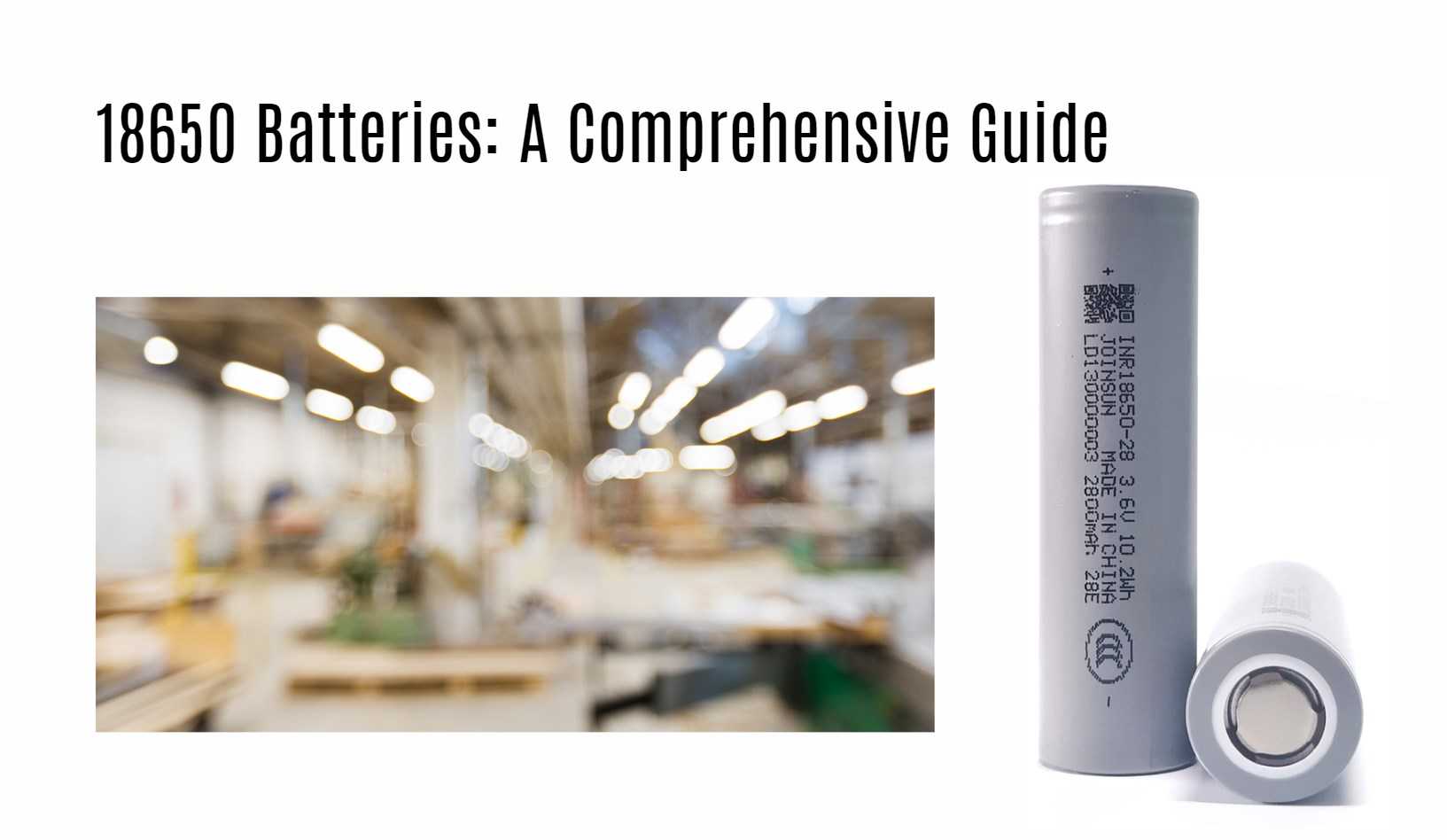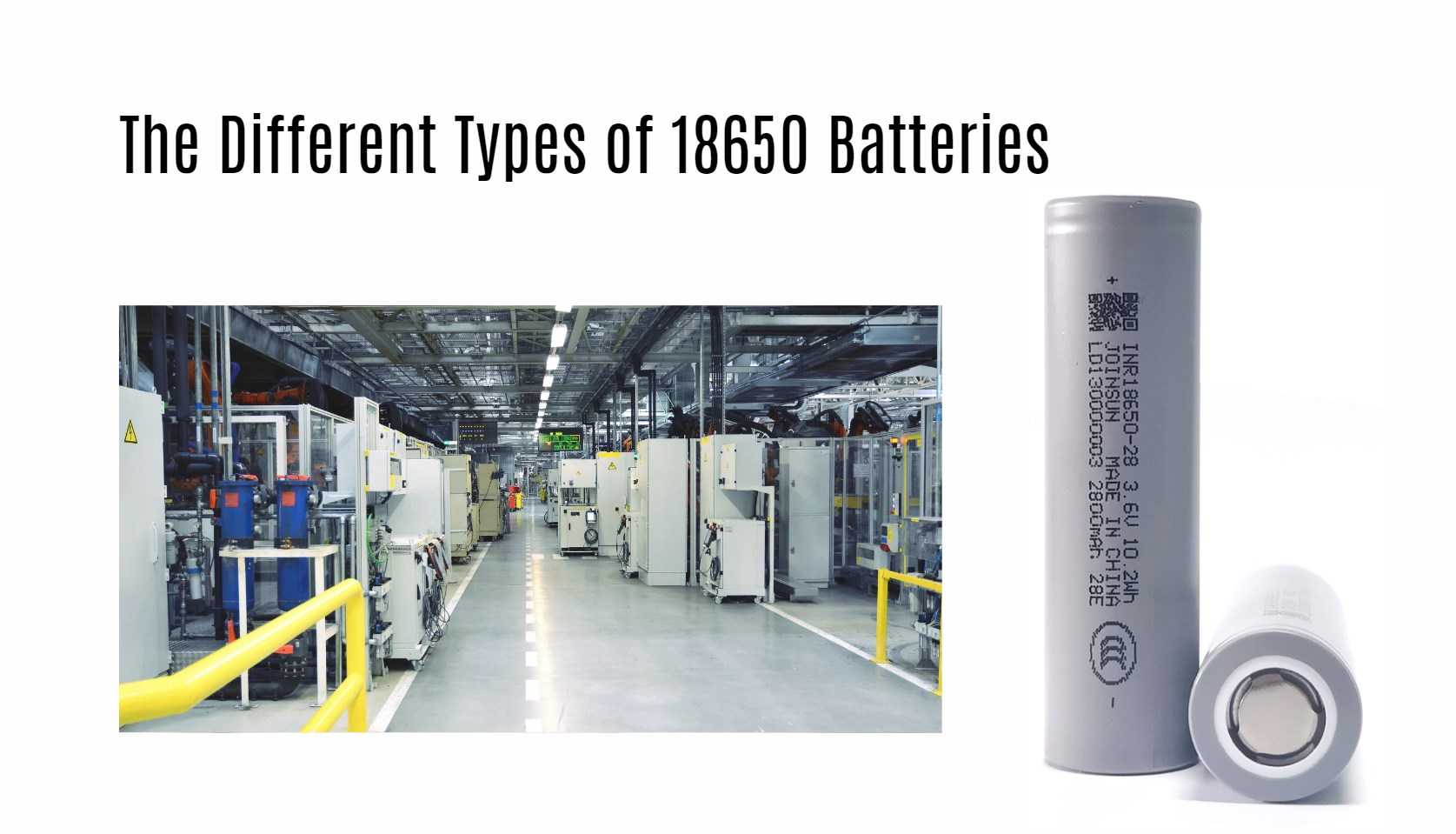Are you tired of constantly replacing dead batteries in your electronics? Look no further than the versatile and reliable 18650 battery. These rechargeable lithium-ion powerhouses have become increasingly popular among tech enthusiasts and outdoor adventurers alike. But with so many options available, it can be overwhelming to choose the right one for your needs. In this comprehensive guide, we’ll break down everything you need to know about 18650 batteries, from their different types and pros and cons to recipes for maximizing their performance. So sit back, relax, and get ready to become an expert on all things 18650!
What are 18650 Batteries?
18650 batteries are cylindrical rechargeable lithium-ion batteries that get their name from their dimensions: 18mm diameter and 65mm length. These versatile power sources have become increasingly popular in recent years due to their high energy density, long lifespan, and ability to be recharged multiple times.
They were first introduced for use in laptops but are now found in a wide variety of electronic devices such as flashlights, vapes, drones, and even electric cars. One major advantage of these batteries is that they can store more energy than traditional alkaline or nickel-cadmium cells.
Wholesale lithium golf cart batteries with 10-year life? Check here.
18650 batteries also come with built-in safety features like overcharging protection so you don’t have to worry about them exploding or catching fire while charging. They’re also environmentally friendly since they can be recharged thousands of times before needing replacement.
If you need reliable and long-lasting power for your electronics or outdoor adventures, 18650 batteries are an excellent choice.
Want OEM lithium forklift batteries at wholesale prices? Check here.
The Different Types of 18650 Batteries
18650 batteries come in different types, and it’s essential to know the differences between them to choose the right one for your device. The most common types of 18650 batteries are Lithium-Ion (Li-ion), Lithium-Polymer (LiPo), and Nickel-Metal Hydride (NiMH).
Li-ion batteries are popular due to their high energy density, which means they can store more power than other battery types. They also have a longer lifespan compared to other rechargeable batteries.
On the other hand, LiPo batteries offer higher discharge rates than Li-ion but have a lower energy density. This makes them suitable for devices that require high power output such as remote-controlled toys or racing drones.
NiMH batteries offer a cheaper alternative but with less capacity and shorter lifespan compared to Li-ion or LiPo. Nonetheless, they’re still an excellent option for low-drain devices like flashlights or radios.
Understanding the different types of 18650 batteries is crucial when selecting one for your device. It’s best always to check compatibility before making any purchase decisions.
Pros and Cons of 18650 Batteries
18650 batteries are widely used in various applications today, from flashlights to electric vehicles. But like any other products, they have their own set of advantages and disadvantages.
One of the main benefits of 18650 batteries is their high energy density, which means they can store a lot of power in a relatively small size. This makes them ideal for portable devices where space is limited.
Another advantage is that most 18650 batteries are rechargeable and can be used multiple times before needing replacement. This not only saves money in the long run but also reduces waste compared to single-use batteries.
However, one potential disadvantage of 18650 batteries is that they require proper care to maintain their lifespan and avoid safety risks such as overheating or explosion. Users need to ensure they use the right charger and follow guidelines on storage temperature and handling.
Another downside is that while there are many reputable brands available, there are also low-quality counterfeit products circulating the market. Consumers must do thorough research when purchasing 18650 batteries to ensure authenticity.
In summary, while 18650 batteries offer numerous benefits such as high energy density and reusability, it’s crucial for users to handle them with care due to potential safety concerns and beware of counterfeit products in circulation.
What are the Best 18650 Batteries?
When it comes to choosing the best 18650 battery, there are a few things you should consider. The capacity of the battery is perhaps the most important factor as this determines how long your device will run between charges. A higher capacity means longer usage time but also a bigger size and weight.
Another important factor to consider is the discharge rate of the battery. This refers to how quickly energy can be drawn from it without damaging or overheating the cell. Higher discharge rates mean that batteries can provide more power in shorter periods.
One popular brand for 18650 batteries is Samsung, specifically their INR series which offers high capacities and discharge rates suitable for vaping devices and flashlights among other applications. Panasonic’s NCR series is another reliable option known for its high energy density and safety features.
Ultimately, determining what makes a “best” 18650 battery depends on your specific needs and preferences, so make sure to do thorough research before making any purchases.
18650 Battery Recipes
18650 batteries are commonly used in various devices such as flashlights, laptops, and power banks. However, many people may not know that these batteries can also be used to create DIY projects such as electronic vehicles or even home energy storage systems.
One of the most popular 18650 battery recipes is building a power bank. To make a simple power bank, you will need several 18650 batteries and a battery holder that fits the desired number of cells. The next step would be to connect the cells in parallel using nickel strips or wire.
Another exciting recipe for 18650 batteries is creating an electric bike. This project requires more advanced knowledge on electronics and a bit more time but can lead to significant savings compared to purchasing an e-bike from a store.
For those looking into renewable energy sources for their homes, 18650 batteries can also serve as part of your solar panel system’s energy storage mechanism.
With creativity and technical skill, there are endless possibilities when it comes to utilizing 18650 batteries outside of their typical uses in everyday devices.
Alternatives to 18650 Batteries
While 18650 batteries may be the go-to option for many devices, there are alternative battery options available. One such option is the CR123A battery, which has a higher voltage and longer shelf life than 18650 batteries. However, they are not rechargeable and can be more expensive in the long run.
Another alternative is the AA or AAA alkaline battery. These batteries are widely available and inexpensive but have a lower energy density than 18650s. They also have a shorter lifespan and cannot sustain high current draws like some electronic devices require.
Lithium polymer (LiPo) batteries are another option for those looking to power their devices with something other than an 18650. LiPo batteries offer higher energy densities and can sustain high current draws but require special charging equipment due to their sensitive chemical makeup.
Some electronic devices now come equipped with built-in rechargeable lithium-ion or lithium-polymer batteries that eliminate the need for external replacement cells altogether.
Ultimately, choosing an alternative to 18650s depends on individual needs and preferences. It’s important to consider factors such as cost, energy density, lifespan, sustainability of use before making any decisions about what type of battery to use in your device.
Conclusion
To sum it up, 18650 batteries have become a popular power source due to their high capacity and long lifespan. They are versatile and can be used in various devices such as flashlights, laptops, electric cars, and more. However, with different types of 18650 batteries available in the market today, it’s important to choose the right one for your device.
When picking an 18650 battery, consider its capacity rating (mAh), discharge rate or C-rating, chemistry type (Li-ion or LiFePO4), brand reputation and price. Also make sure to follow proper handling procedures like charging only with compatible chargers and avoiding overcharging or overheating.
In conclusion, 18650 batteries offer a reliable and efficient source of power but must be chosen carefully based on individual needs. With this comprehensive guide at hand though you should now feel confident enough about making an informed decision when buying these powerful little energy sources!







